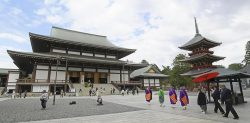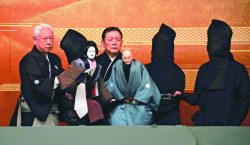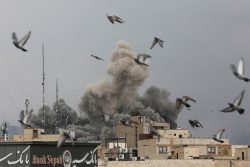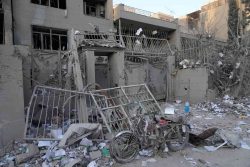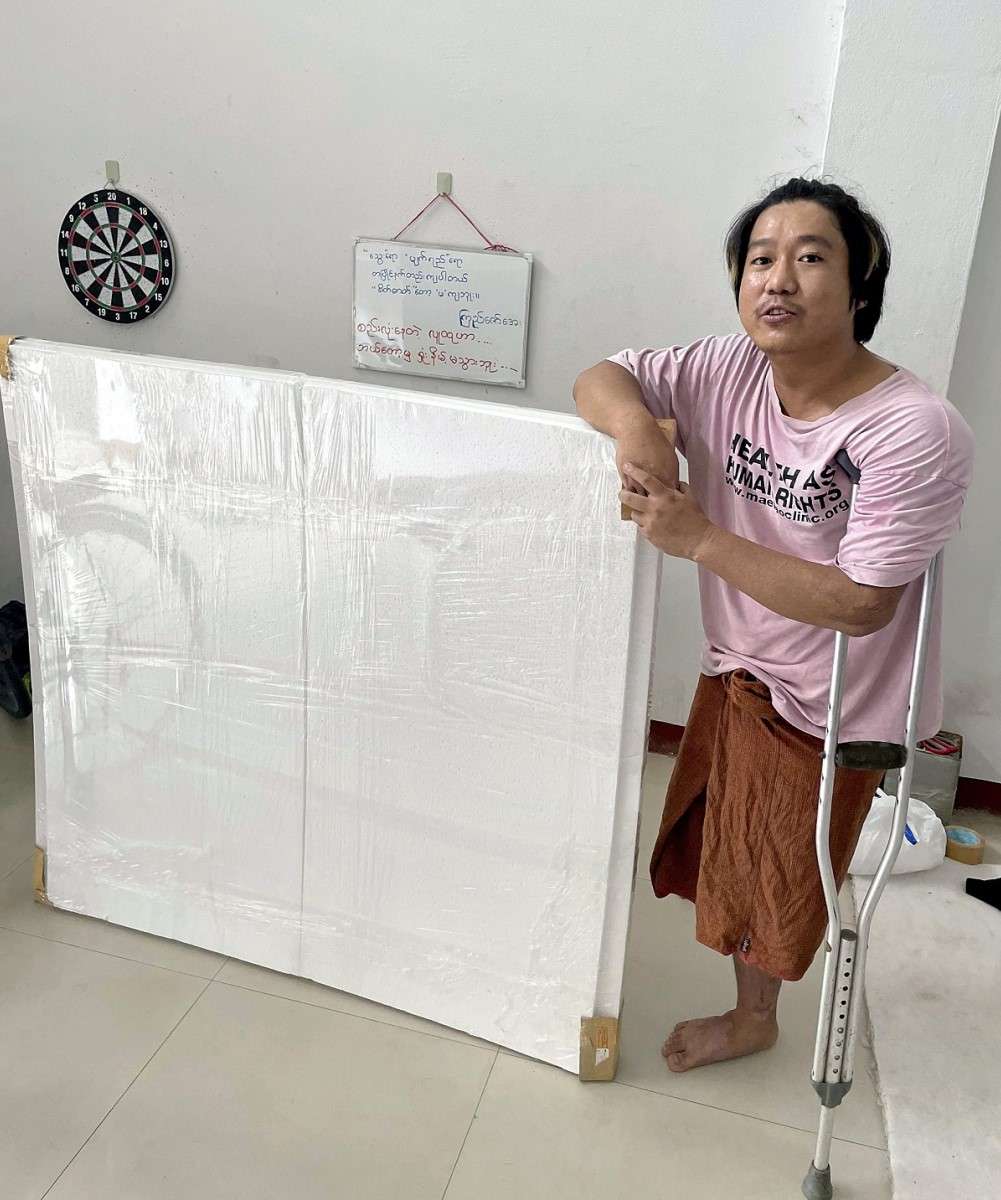
Taw Wat, a pseudonym, shows a polystyrene panel to be sent to his home country, in Mae Sot in northwestern Thailand. He has lost most of his left leg and uses a crutch.
14:56 JST, September 13, 2023
MAE SOT, northwestern Thailand — Since Myanmar’s military coup in February 2021, Myanmar nationals who fled the oppressive rule and illegally crossed the border into neighboring Thailand have become increasingly isolated due to a lack of support from international organizations.
The close relationship between the Thai military and the Myanmar national army has had an impact on the situation. In a border town on the Thai side, friction has arisen between the rapidly increasing number of evacuees and Thai people.
‘ATM’ for police
Mae Sot in the northwestern Thai province of Thak faces Myanmar, with the Moei River as its border. About 100,000 Myanmar nationals fleeing fighting and oppression have entered the city, according to a local aid organization. As a non-member of the U.N. Refugee Convention, Thailand is not obliged to accept refugees. Myanmar nationals who have fled are therefore treated as “temporary refugees” without official permission from the Thai government to stay, and are constantly in fear of when they will be repatriated to Myanmar.
In this vulnerable position, they are said to have become “automated teller machines” for local police.
The displaced people often pay a hefty fee to a local agent to act as an intermediary with the Thai authorities, and apply for a permit for migrant workers — or a “police card” — which is only valid in Mae Sot.
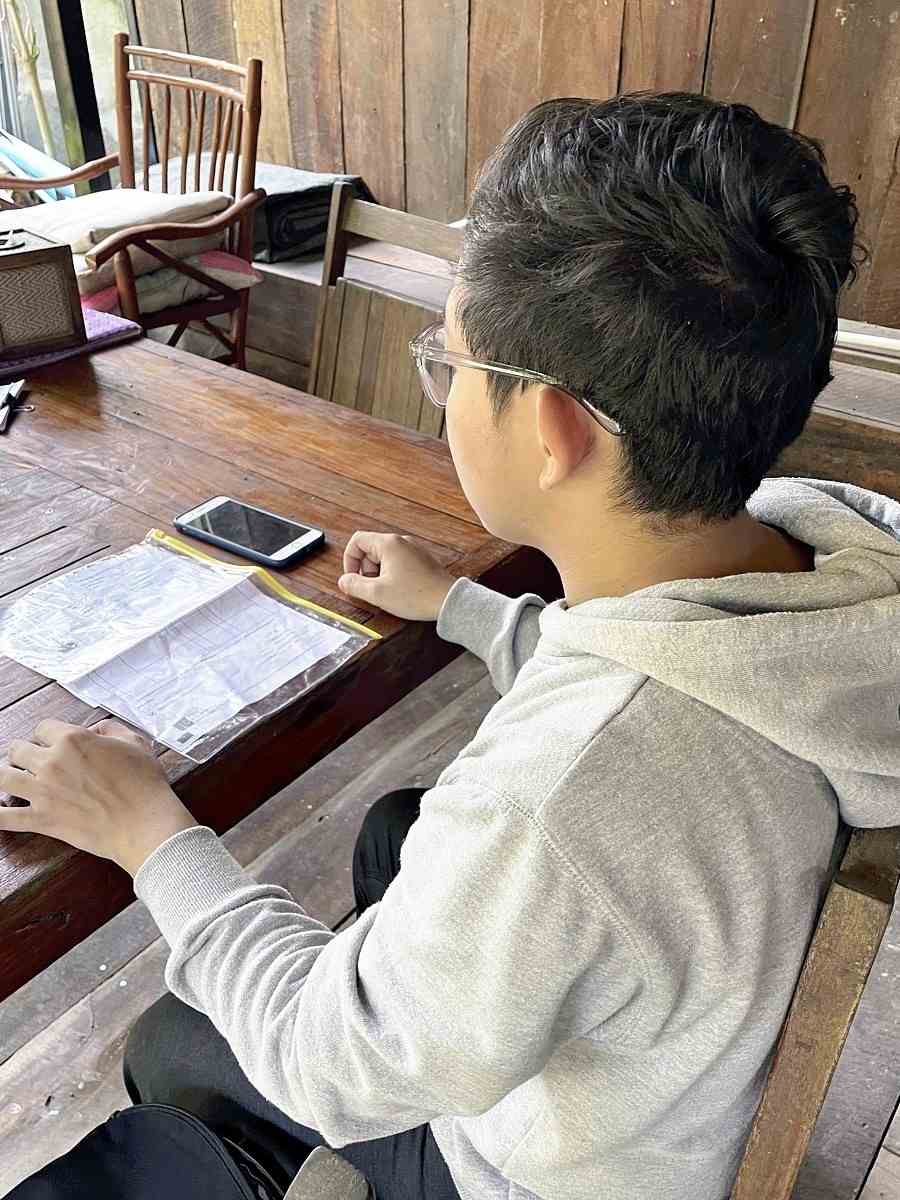
Thant Zin Kyaw, a pseudonym, in Mae Sot.
Refugees pay a monthly fee of 300 baht (about ¥1,245) to the Mae Sot police to obtain the card, and are exempt from detention if they present it when questioned by the police.
But this card is ineffective if they are caught by the Thai military or immigration authorities. On top of that, refugees are often asked to pay police officers even if they present the card.
Thant Zin Kyaw, a pseudonym, who came to Mae Sot in May, was asked twice for additional bribes even though he had a police card. The 25-year-old said he had no choice as he didn’t want to be deported.
A 58-year-old senior member of the National League for Democracy led by now jailed civilian leader Aung San Suu Kyi also fled to Mae Sot. “The Thai police are terrible, but they are better than the Myanmar authorities because they don’t kill civilians,” he said.
Helping resistance
Not a few displaced Myanmar nationals support the resistance force in their country.
“From this board, we can cut enough material for four drones,” said Taw Wat, a pseudonym, holding up some white polystyrene that will be sent to Myanmar.
The 27-year-old, who is currently in hiding in Mae Sot, joined the armed resistance against the Myanmar army after his friend was killed during a resistance activity.
Taw Wat was caught in an explosion while making homemade bombs and lost most of his left leg.
He remains in Mae Sot with a single-minded determination to be of some help — even though he can no longer be at the battle front — and continues to send materials for weapons and food to Myanmar.
By attaching a bomb to a drone, it can be used as a weapon to attack the army’s outposts. The Thai police raided his base in Mae Sot, but Taw Wat has been kept out of detention by paying bribes.
“We will keep supporting my comrades from here until we win against the national army,” he said.
Thant Zin Kyaw, meanwhile, is the president of a student union at a Myanmar university. Right after the coup, he led protests against the military in Yangon and elsewhere. The national military has issued arrest warrants against him for these peaceful activities, on charges including sedition and terrorism.
The national army has shared a list of arrest warrants with the Thai side and is seeking extradition. In April, an armed citizen captured in Thailand was reportedly killed when he was handed over to the Myanmar side.
Public security
Local Thai residents are not always welcoming to the refugees, who are often regarded as the source of a deterioration in public security.
According to the Royal Thai Police, the number of thefts in Thak Province, including Mae Sot, increased from 106 in 2020 before the coup to 177 in 2022. This year, the number of cases had already exceeded 107 by August.
“Motorcycle thefts and robberies have increased,” a man who runs household goods store in Mae Sot said. “It is necessary for humanitarian reasons to accept Myanmar nationals, but we need to take measures such as limiting where they can live.”
In public schools in Mae Sot, students from Myanmar now account for 80% of all students.
“The number of students has increased 1.6 times compared to before the coup. The classrooms are too full,” Anuchit Chettha-Trakul, principal of a public school in Mae Sot, said.
Third-country resettlement
The Thai government is reluctant to take steps to help fleeing Myanmar citizens resettle in a third country through the United Nations.
According to Frontier Myanmar, an independent Myanmar media outlet, only about 400 Myanmar nationals had fled to the United States and elsewhere under the U.N. framework by the end of June, and several thousand applicants are waiting in Thailand.
A man in his 40s said, “More than a year has passed since I applied, but no progress has been made, and I cannot see a way forward.”
The Thai government’s obstruction is believed to be a contributing factor.
In March, Thomas Andrews, the U.N. Special Rapporteur on the situation of human rights in Myanmar, said in a report, “Myanmar nationals in neighboring countries enjoy few legal protections and face the risk of arrest, detention, deportation, pushbacks at land and sea, and obstruction of their access to UNHCR, refugee status determination, and resettlement.” He refrained from naming the “neighboring countries.”
The Thai government appears to be concerned that the Myanmar army will see Thailand as a base for sending displaced people to third countries.
Former Thai Prime Minister Prayuth Chan-ocha led the 2014 coup in Thailand as army commander. The armies in the two countries have historically had a close relationship, and Thailand’s consideration for the Myanmar national army is evident.
Immediately after the coup on Feb. 1, 2021, Myanmar’s top military commander Gen. Min Aung Hlaing sent a letter to Prayuth asking for support, and a military-appointed “foreign minister” visited Thailand to meet with Prayuth.
While the Association of Southeast Asian Nations (ASEAN) has refused the attendance of the military-appointed minister at its meetings to resolve the Myanmar issue, the Thai foreign minister has taken a flexible stance, inviting the “minister” to discuss the issue within a different framework, drawing criticism for endorsing Myanmar’s military’s rule and leading to disunity within ASEAN.
Thailand has been struggling with an increasing number of Myanmar refugees, and has been forced to seek cooperation with its national military to repatriate them.
Thai Prime Minister Srettha Thavisin of the Pheu Thai Party was inaugurated on Aug. 22, and his administration is under the influence of the military. The situation surrounding Myanmar refugees is unlikely to improve.
Top Articles in World
-

Israeli Ambassador to Japan Speaks about Japan’s Role in the Reconstruction of Gaza
-

Videos Plagiarized, Reposted with False Subtitles Claiming ‘Ryukyu Belongs to China’; Anti-China False Information Also Posted in Japan
-

Nepal Bus Crash Kills 19 People, Injures 25 Including One Japanese National
-

Russia: Visa Required for Visiting Graves in Northern Territories, Lifting of Sanctions Also Necessary
-

China, India Tapping into Promising African Market; Beijing Announces Tariff Cuts, Both Countries Aim to Expand Exports
JN ACCESS RANKING
-

Producer Behind Pop Group XG Arrested for Cocaine Possession
-

Japan PM Takaichi’s Cabinet Resigns en Masse
-

Man Infected with Measles Reportedly Dined at Restaurant in Tokyo Station
-

Israeli Ambassador to Japan Speaks about Japan’s Role in the Reconstruction of Gaza
-

Videos Plagiarized, Reposted with False Subtitles Claiming ‘Ryukyu Belongs to China’; Anti-China False Information Also Posted in Japan








